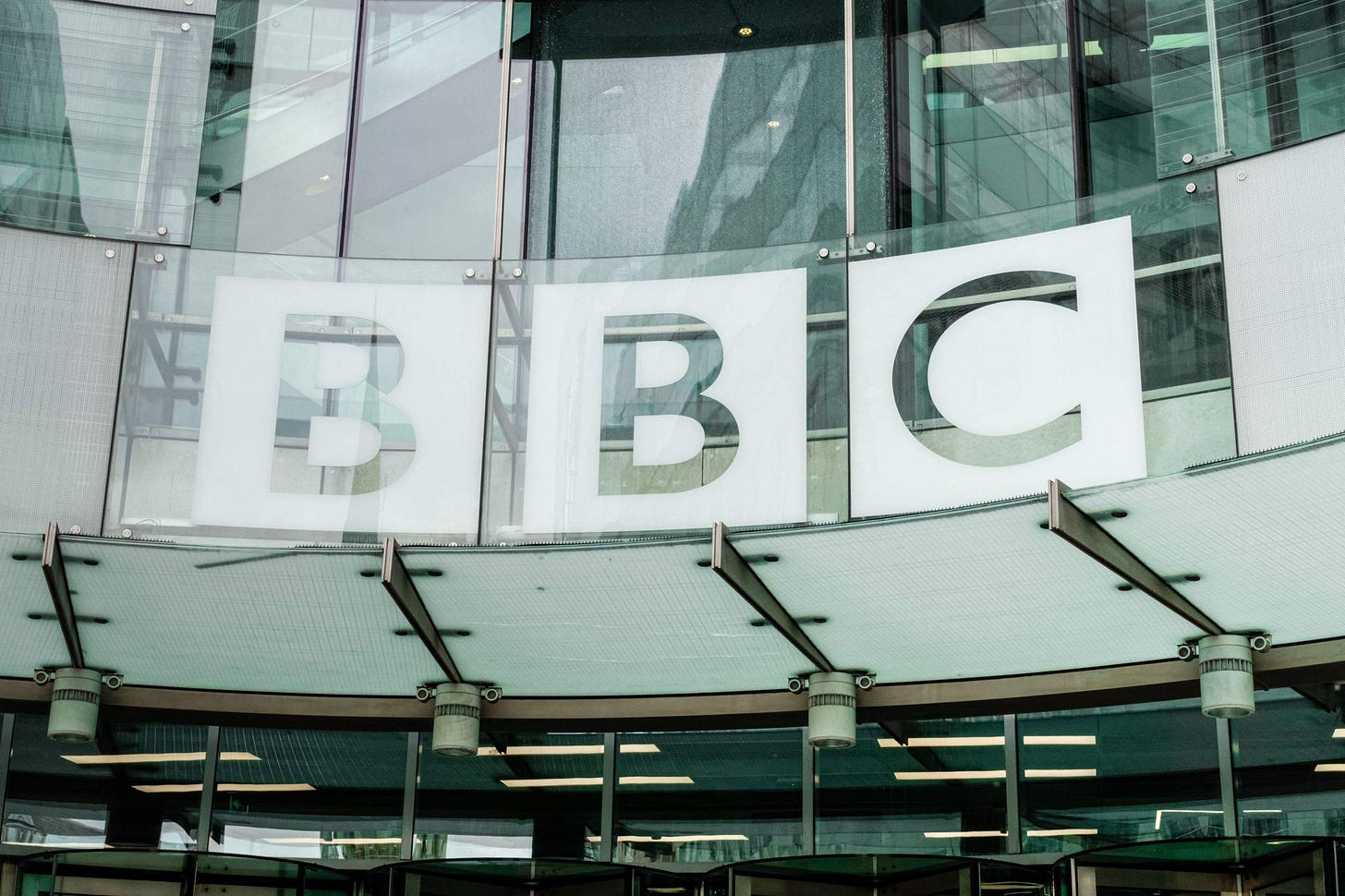Take It from an American: Killing Public Service Broadcasting is Democratic Suicide
As the BBC comes under growing threat, Christian Christiansen warns that Brits should be careful what they wish for
For over half of my life, I’ve made a career out of observing, examining, investigating, writing, and teaching about media and journalism. Out of considering the relationship between the power of media, democracy, and society. Twenty-five years ago, as a PhD student at the University of Texas, I came to Sweden to conduct my dissertation research on how news workers defined and thought about the term “public service”, and how those ideas shaped their journalism. In that same life, I’ve lived in four countries: two with robust, well-financed public service broadcasters (UK, Sweden), one with weak, politicised public service broadcasting (Turkey), and one – my homeland – with no public service at all (USA).
Now, across Europe, public service broadcasting is under attack from the political right. The short-sightedness may not be surprising, but it is still disturbing.
Based on my personal and professional experiences, if there’s one thing I can say with a fairly high degree of certainty, it is that the presence of a well-financed, competitive, independent public service system is central to a functioning egalitarian democracy. Yes, public service broadcasting provides important, valuable content that the commercial sector, for economic reasons, is unwilling to provide. But it’s more than that. Public service broadcasting also generates residual and indirect benefits for the nation that go well beyond the content of individual programs. Things that, because they cannot be calculated or measured in programming hours, audience figures, annual budgets, or awards, are often ignored. It is these parts of public service that I feel should be discussed.
Public service broadcasting is about an ethos that people in a country should have spaces where they are addressed as citizens rather than as consumers. Where their attention isn’t valued simply because it can be converted into profits for media owners and advertisers. In contemporary society, these non-commercial spaces are increasingly rare. From the minute we wake up until the minute we go to sleep, our existence is saturated in the logic and rhetoric of consumerism and consumption. Public service broadcasters like the BBC or Sweden’s SVT are reminders that another system is not only possible, but can thrive. A reminder that the public sphere need not be monopolized by profit-driven commercial interests.
The US, my home, is a place where public service broadcasting was never allowed to take root. Commercial interests won that battle in the 1920s and 1930s and have dominated since. The result? Lots of entertainment, but a toxic wasteland when it comes to news, culture, and public interest. What US commercial media (unlike public service media in Europe) have produced is the atomisation of society, the dumbing-down of politics and children’s programming that are little more than 23 minutes of consumer porn. It’s a national informational system shaped by the interests of billionaires, shareholders, and Burger King, not citizens. Europe should avoid that road at all costs.
But is this romanticism? What do the numbers tell us about what people think of public service broadcasting? Research shows that public service broadcasters in Europe are usually the most trusted media organisations in any given country. In Sweden (where I live) it's not even close.
In a 2024 study on media trust in Sweden, 68% of Swedes responded that they have a "Great Deal” or “Fairly Large" amount of trust in public service radio, and 63% in public service television. Local newspapers were a distant third on 48%.
"Ah, but it's only the left that trust public service broadcasting" people say. No. In Sweden, it's only far-right Sweden Democrat supporters with low levels of support. 50% to 60% of those who voted for other right-wing parties expressed trust in public service broadcasting. Those are trust levels that still beat those for the commercial alternatives in Sweden. To highlight the point, when major events such as the Russian invasion of Ukraine and COVID hit, Swedes overwhelmingly turned to public service for news and information they felt they could trust. Similarly, in the UK, the BBC saw unprecedented levels of traffic to its pages as global audiences searched for sober, reliable information on COVID. Not right-wing conspiracy outlets. Not the Daily Mail. Public broadcasting.
And there's a great deal of irony in people across Europe who politicise the importance of "national language" and "national identity” then wanting to cut back widely-used public institutions that will prioritise national language and culture. There’s also irony in those who complain about the excessive power of "mainstream corporate media" then turning around and saying that we should weaken public service, thereby handing even more control of national media over to the very "corporate elites" they claim to hate.
Is public service broadcasting perfect? No. But neither are democracies. The answer is to try and reach the potential we know to be possible. Like democracy, public service broadcasting is worth defending. As politicians consider the future of public service broadcasting across Europe, there is a simple and clear message: Protect and defend that system. Because if it dissolves, you can never get it back.
And you never really know what you had until it’s gone.
Christian Christensen is Professor of Journalism at Stockholm University


